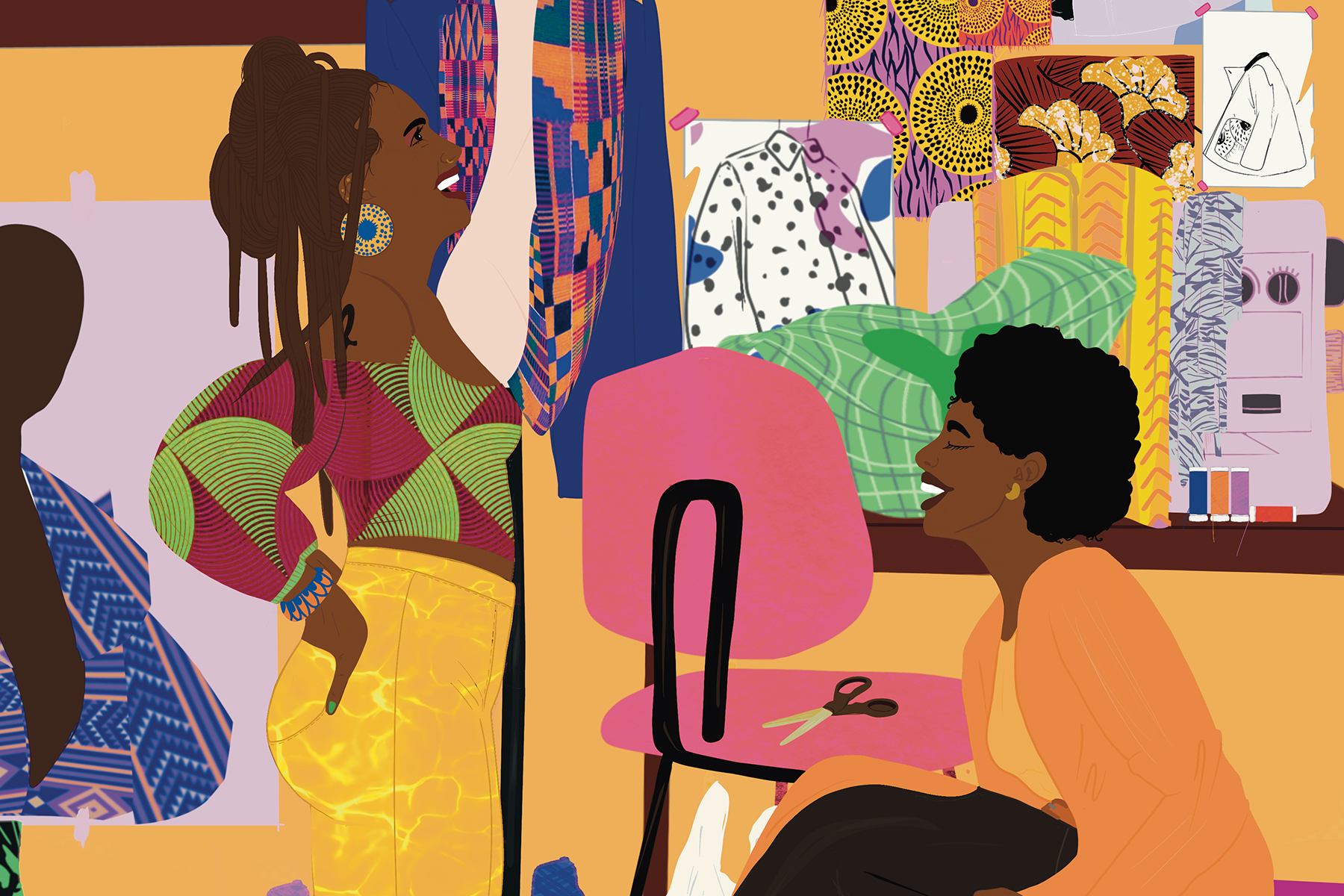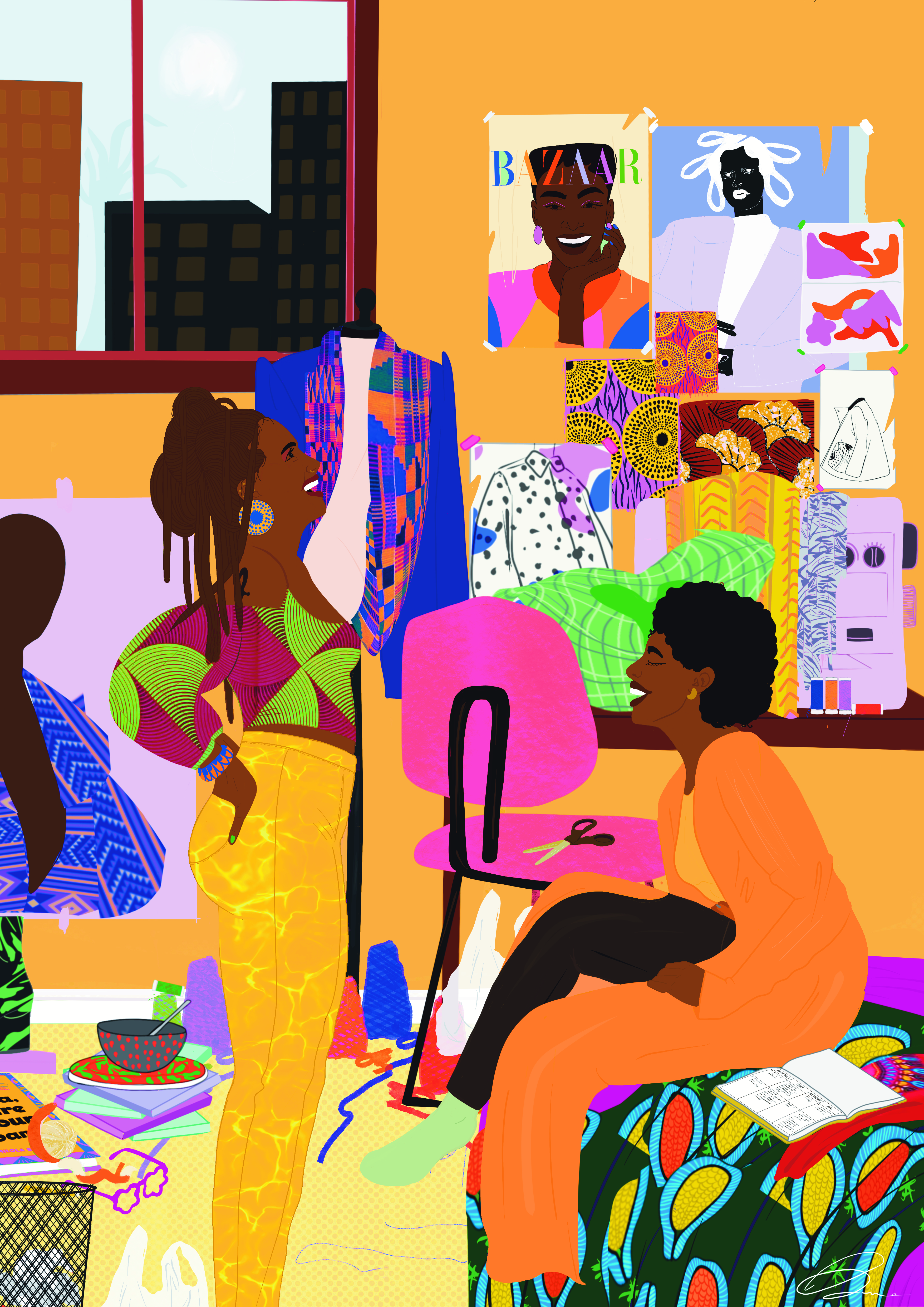
- Home |
- Search Results |
- Why female friendship is the greatest love story in my novel
Why female friendship is the greatest love story in my novel
Lizzie Damilola Blackburn knows the unique beauty of a gang of girlfriends, which is why they play such a crucial role in Yinka, Where is Your Huzband?
I love my husband, but it is nothing like a conversation with a woman that understands you. I grow so much from those conversations. – Beyoncé
Yes, say it again, Beyoncé! Female friendships are e-ve-ry-thing. They are the bedrock of many women’s lives. Although romantic relationships are great, nothing can compare to the love that you have for and receive from your girlfriends. I, for one, know that my life would have a lot less colour if I didn’t have my beloved posse.
Why are female friendships important? Personally, I think it’s because women thrive off emotional connection; it gives us strength. Our girlfriends not only provide us with an outlet to talk, laugh – and let’s be honest, rant sometimes – but they are a safe space to be open and vulnerable. They are the ones that we immediately call when we’ve met someone. The ones that we seek advice from when we’re going through a rocky patch. And they are the ones who will, without prompting, bad-mouth the person who broke your heart, even though they haven’t met them in person. Our girlfriends empower us, motivate us, and when necessary, check us – “Gurl, you know I love you, but (fill in the blanks)”. They’re not always perfect – sometimes they drive us mad, either because you don’t agree with their actions or maybe they don’t understand yours – but they’re awesome nonetheless. Heck, they even make great toilet buddies on a night out.
Given the beauty and complexity of female friendships, I wanted this to be a central part of my debut novel, Yinka, Where is Your Huzband?, and not an add-on. Navigating adulthood is hard; there are so many things that vie for your attention, from your family to your career to your love life, not to mention all the bills you have to pay. And on top of all of that, you have to find a way of balancing everything while also managing your mental health.

At the beginning of the novel, Yinka is going through a tough season in her life where everything just seems to be going wrong: she is as single as a dollar bill, her mum and her aunties pray for her in public to find a huzband, and the one good thing that she has – a stable job in the city – is suddenly taken away from her when she is made redundant. Even just one of these things would be difficult for anyone to process by themselves, and this is why female friendships are so valuable.
In Yinka’s case, her best friend Nana is her confidante: the person who supports her along the way. She’s the one who reassures her when she goes through periods of self-doubt; the one who shares her nuggets of wisdom when all of Yinka’s rationality goes out of the window and is replaced by fear. She’s the one who sticks by Yinka – even when she doesn't agree with all of her decisions – because that’s what friends do.
Female friendships are multifaceted; they come in different forms and with different dynamics. In addition to Nana, Yinka considers her cousins Rachel and Ola her closest friends, and has done since childhood. When writing Yinka, I wanted to show how family connections can add a different spin on friendships – sometimes we allow our family members to get away with way more than they should, and they can be brutally honest too! – and how maintaining such relationships may require extra work.
For a long time, there’s been this unresolved tension simmering between Yinka and her cousins, but because they’re family, she’s not prepared to cut ties with them. In addition to highlighting the pros of female friendships, I also wanted to display its messier side, such as when they argue and say things from a place of hurt. In these instances where their friendship is tested, can they learn to forgive, reconcile and move forward?
Female friendships are multifaceted; they come in different forms and with different dynamics
Lastly, I wanted to show that our female friends are not just around to hear updates on what’s going on in our lives – though, they’re very good at that – but that they have things going on too, which we, as a friend, should be invested in. Hence why I spent a lot of time fleshing out the lives of Nana, Ola and Rachel. In Yinka, we follow Nana as she pursues her dreams to become a fashion designer. We ride the waves with Rachel as she plans her dream wedding. And we empathise with Ola when she laments her struggles being a mum of three. When Yinka goes on her journey of self-discovery, I didn’t want the readers to forget the brilliant, flawed women who helped her get there. I wanted their personal growth to be celebrated too.
Now, on that note, let’s raise a glass to all our gals, sisters, ride-or-dies – whatever you call them. Here’s to many more years of friendship.
What did you think of this article? Email editor@penguinrandomhouse.co.uk and let us know.
Image: Jovilee Burton for Penguin